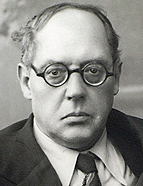

Alfredo Pimenta’s historical and political thinking is inseparable from a polarised intellectual and political career, ranging from individualist anarchism to republicanism (he was editor of the Evolutionist Party programme and right-hand man to António José de Almeida until 1914); from constitutional monarchism to integralism (aligned with Integralismo Lusitano and, later, in his own name, with Ação Realista Portuguesa) and, in a nuanced way, to Salazarism, even showing, towards the end of his life, sympathy for fascism, corresponding with Mircea Eliade and prefaced an edition of Mussolini’s political testament. Still in the 1920s, during one of the many controversies in which he was involved, he justified the dispersion of his career in a letter to Seara Nova, citing a supposed common thread that sustained him – anti-democracy – and which ran through all these divergent political affinities: “What was inside my anarchism is inside my republicanism and remains inside my monarchism [...]. Anti-democratic in anarchism, anti-democratic in the republic, anti-democratic in the monarchy. A supporter of aristocracies, of elites, in anarchism, in the republic, in the monarchy. Cultivating supermen in anarchism, in the republic, in the monarchy. In anarchism, my philosopher was [Max] Steiner. In the republic, my philosopher was Comte. Auguste Comte is my philosopher in the monarchy.” (“Letter to Mr David Ferreira”, Seara Nova, 1-4-1922).
His brief connection with anarchism emerged while he was still studying for his degree in Coimbra, influenced by his reading of Proudhon, Bakunin, Kropotkin and, in particular, Steiner. However, he soon drifted towards positivism, first, and then republicanism – reading Comte and Teófilo (who became his friend and to whom he dedicated O fim da monarquia [The End of the Monarchy], published in 1906). The French philosopher, like several other intellectuals of his time in Coimbra (such as Carlos Amaro, Henrique Trindade Coelho and António Sardinha), had a decisive influence on his formative years: “Having passed the age of 21, intoxicated by philosophy – by all the philosophy I encountered along the way, from German to Eastern, and th , I came across Comte’s positive philosophy – a philosophy that everyone talks about but only half a hundred people have read and know directly.” (O fim da monarquia, 1906, p. 46.).
This work is financed by national funds through FCT - Foundation for Science and Technology, I.P, in the scope of the projects UIDB/04311/2020 and UIDP/04311/2020.
